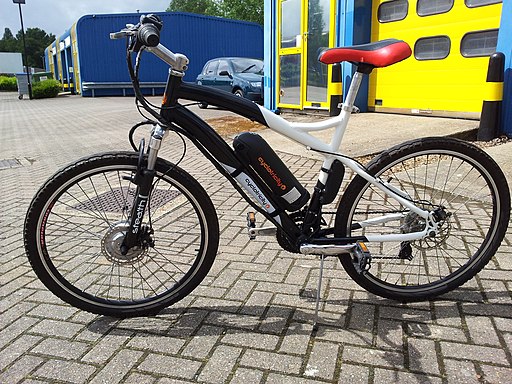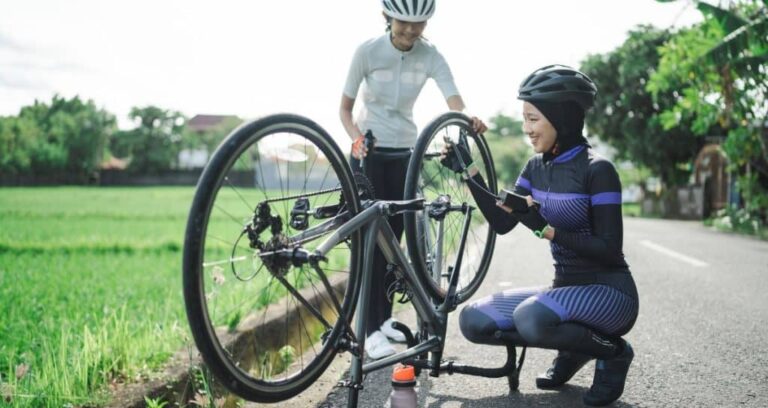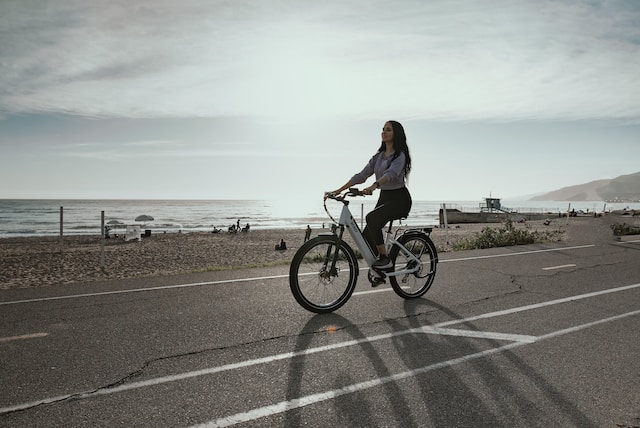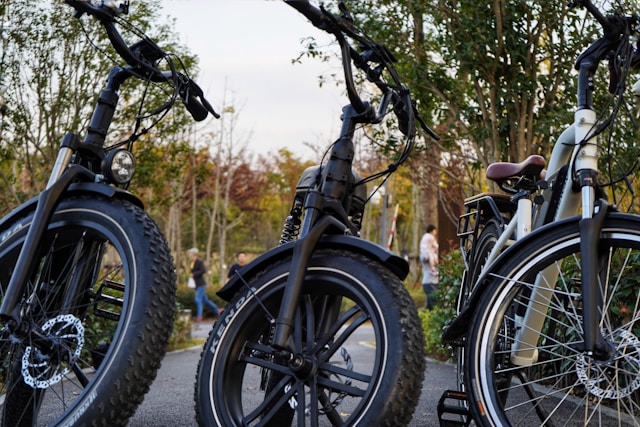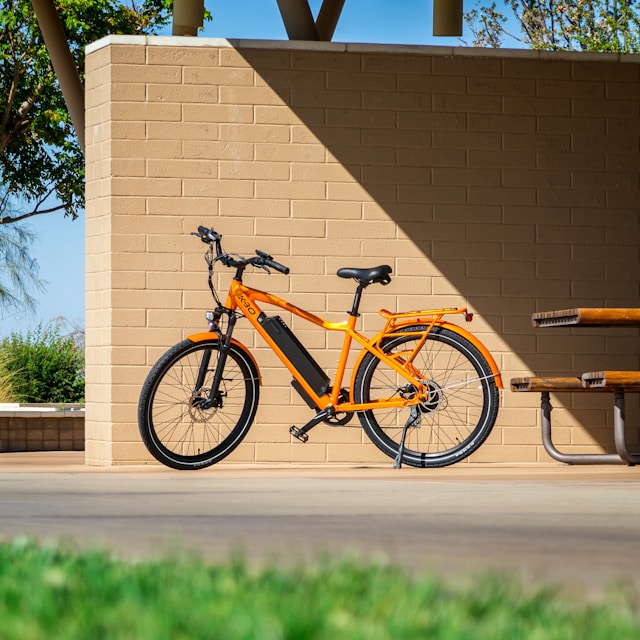Can Electric Bikes Be Used for Towing Trailers? Exploring Capacity, Safety, and Practicality
Electric bikes, or e-bikes, have surged in popularity in recent years, revolutionizing the way people commute, exercise, and explore their surroundings. Offering the perfect blend of pedal power and electric assistance, e-bikes have become the go-to choice for individuals seeking an efficient, eco-friendly, and enjoyable mode of transportation.
The versatility of electric bikes knows no bounds. From urban commuters navigating city streets to outdoor enthusiasts conquering rugged trails, e-bikes cater to a wide range of lifestyles and preferences. With advancements in technology and design, electric bikes have evolved to meet the diverse needs of riders, offering varying levels of assistance, sleek designs, and long-lasting batteries.
However, amidst the myriad of uses for electric bikes, one question often arises: Can electric bikes be used for towing trailers? This intriguing inquiry opens up a world of possibilities for e-bike enthusiasts looking to expand the utility of their rides. Whether it’s hauling groceries, transporting camping gear, or towing cargo for work purposes, the prospect of utilizing electric bikes for towing trailers holds immense appeal.
In this blog post, we delve into the topic of towing trailers with electric bikes, exploring the feasibility, safety considerations, and practical applications of this innovative approach to transportation. We’ll examine key factors such as towing capacity, performance, and regulations to provide readers with a comprehensive understanding of whether electric bikes can indeed serve as reliable towing vehicles. Join us as we navigate through the intricacies of electric bike trailer towing, uncovering valuable insights and practical tips along the way.
Key Takeaways
- Electric bike towing capacity varies depending on factors such as motor power and frame design.
- Factors influencing towing performance include terrain, trailer weight, and rider weight.
- Safety is paramount when towing trailers with electric bikes; proper balance and braking techniques are essential.
- Electric bikes offer practicality and versatility for towing trailers in various real-world scenarios.
- Understanding regulations and legal considerations is important to ensure compliance when towing trailers with electric bikes.
- Frequently Asked Questions provide clarity on common concerns related to electric bike trailer towing.
- Exploring external sources can provide additional insights and resources for those interested in towing trailers with electric bikes.
Understanding Electric Bike Towing Capacity
When considering the feasibility of towing trailers with electric bikes, understanding towing capacity is paramount. Towing capacity refers to the maximum weight a vehicle, in this case, an electric bike, can safely tow without compromising performance or safety. Just as cars have towing capacities specified by manufacturers, electric bikes also have their limits that riders must adhere to for optimal functionality.
The determination of electric bike towing capacity is influenced by various factors, including the power of the motor, the strength of the frame, and the stability of the overall design. Manufacturers conduct rigorous testing to establish the towing capacity of their electric bike models, taking into account factors such as torque output, battery capacity, and structural integrity.
Comparing towing capacities among different electric bike models reveals a spectrum of capabilities tailored to meet the diverse needs of riders. Some electric bikes boast robust towing capacities, capable of hauling substantial loads with ease, while others are designed for lighter cargo or recreational purposes. Factors such as motor wattage, battery voltage, and frame construction play a significant role in determining towing capacity, with higher-powered electric bikes typically offering greater towing capabilities.
For riders seeking to tow trailers with their electric bikes, understanding the towing capacity of their specific model is essential for safe and efficient operation. By consulting manufacturer specifications and adhering to recommended guidelines, riders can ensure they stay within the designated towing limits, minimizing the risk of strain on the bike’s components and maintaining optimal performance.
Electric bike towing capacity serves as a crucial metric for riders considering the use of trailers. By comprehending the factors influencing towing capacity and comparing capabilities among different electric bike models, riders can make informed decisions regarding the suitability of their e-bikes for towing tasks, maximizing both safety and functionality.
RELATED CONTENT – Choosing and Converting Electric Cargo Bikes
RELATED CONTENT – Maximize Efficiency with Electric Cargo Bikes
Factors Influencing Towing Performance
Towing performance with electric bikes hinges on a multitude of factors, each playing a crucial role in determining the bike’s ability to handle the added load with efficiency and stability. Understanding these factors is essential for riders seeking to optimize their towing experience and ensure safe operation.
Motor Power, Battery Capacity, and Frame Design: The power of the electric bike’s motor, coupled with its battery capacity and frame design, forms the foundation of towing performance. Higher-powered motors provide greater torque, enabling the bike to handle heavier loads more effectively. Similarly, electric bikes equipped with larger battery capacities can sustain power output over longer distances, ideal for extended towing journeys. Additionally, a sturdy frame design with reinforced components enhances stability and durability, crucial for towing trailers with confidence.
Impact of Terrain, Trailer Weight, and Rider Weight: The terrain over which an electric bike travels significantly influences towing performance. Uphill climbs pose a greater challenge, requiring more power from the motor to overcome gravitational resistance. Similarly, rough terrain or uneven surfaces can affect stability and traction, necessitating careful navigation when towing trailers. Moreover, the combined weight of the trailer and its contents, along with the rider’s weight, directly impacts the bike’s ability to accelerate, brake, and maneuver effectively. Riders should consider these factors when planning towing routes and adjusting their riding technique accordingly.
Importance of Proper Maintenance and Tire Pressure: Maintaining optimal performance requires regular maintenance and attention to detail. Keeping the electric bike’s components clean, lubricated, and well-adjusted ensures smooth operation and prolongs the lifespan of critical systems. Additionally, maintaining proper tire pressure is essential for towing stability and efficiency. Underinflated tires increase rolling resistance, reducing fuel efficiency and placing added strain on the motor. Conversely, overinflated tires diminish traction and stability, compromising safety when towing trailers. Regular inspection and adjustment of tire pressure are essential for optimal towing performance.
Factors such as motor power, battery capacity, frame design, terrain conditions, trailer weight, rider weight, and maintenance practices collectively influence the towing performance of electric bikes. By understanding these factors and implementing appropriate measures, riders can enhance their e-bike towing experience, achieving greater efficiency, stability, and safety along the way.
RELATED CONTENT – Guide to Cargo Bikes for Hauling Groceries and Kids
RELATED CONTENT – Review of the Asphalt Mokwheel Electric Bike
Safety Considerations for Towing Trailers
Towing trailers with electric bikes introduces unique safety considerations that riders must prioritize to ensure a safe and enjoyable experience. From maintaining stability and balance to navigating descents with confidence, adopting appropriate safety measures is essential for riders venturing into the realm of e-bike trailer towing.
Importance of Maintaining Stability and Balance: Maintaining stability and balance is paramount when towing trailers with electric bikes. The added weight and bulk of the trailer can affect the bike’s handling characteristics, requiring riders to adapt their riding technique accordingly. Distributing weight evenly within the trailer and securing cargo to minimize shifting can help maintain stability during acceleration, deceleration, and turns. Additionally, riders should practice riding at moderate speeds and avoid sudden maneuvers to prevent loss of control.
Tips for Braking Safely and Maintaining Control on Descents: Braking safely and maintaining control on descents are critical aspects of e-bike trailer towing. When approaching downhill sections, riders should anticipate the increased braking distance and adjust their speed accordingly. Gradually apply the brakes to avoid sudden stops, which can lead to skidding or loss of traction. Utilizing both front and rear brakes in tandem can distribute braking force evenly, enhancing stability and control. Furthermore, engaging regenerative braking systems available in some electric bikes can help recharge the battery while slowing down, improving overall efficiency.
Use of Safety Gear and Precautions for Visibility: Wearing appropriate safety gear and enhancing visibility are essential precautions for e-bike trailer towing. Helmets should be worn at all times to protect against head injuries in the event of a fall or collision. Reflective clothing and accessories, such as vests, ankle bands, and helmet lights, can significantly improve visibility, especially when riding in low-light conditions or inclement weather. Installing rear-facing lights and reflective tape on the trailer itself increases visibility to motorists and other road users, reducing the risk of accidents or collisions from behind.
Prioritizing safety considerations is paramount for riders towing trailers with electric bikes. By maintaining stability and balance, practicing safe braking techniques, and enhancing visibility with appropriate safety gear, riders can mitigate risks and enjoy the benefits of e-bike trailer towing with confidence and peace of mind.
RELATED CONTENT – Ebike Safety – 14 Important Tips
RELATED CONTENT – Can You Use Electric Bikes for Delivering Food?
Practicality and Real-World Applications
Towing trailers with electric bikes open up a world of practicality and versatility, offering solutions to various everyday challenges and facilitating unique experiences for riders. From mundane errands to adventurous escapades, the applications of e-bike trailer towing are as diverse as they are practical.
Examples of Common Uses: One of the most common applications of towing trailers with electric bikes is for grocery shopping. With the ability to haul sizable loads, e-bike riders can easily transport groceries from the store to their homes, eliminating the need for car trips and reducing carbon emissions. Similarly, e-bike trailer towing proves invaluable for camping enthusiasts, allowing them to transport camping gear, supplies, and equipment to remote destinations with ease. Additionally, e-bikes are increasingly being used for commercial purposes, such as food delivery and parcel delivery services, leveraging their efficiency and agility in urban environments.
Real-World Experiences and Testimonials: Real-world experiences and testimonials from e-bike users attest to the practicality and convenience of towing trailers with electric bikes. Riders share anecdotes of effortlessly navigating city streets with loaded trailers, embarking on cross-country adventures with all the comforts of home in tow, and embracing eco-friendly lifestyles by reducing reliance on fossil fuel-powered vehicles. These firsthand accounts offer valuable insights into the feasibility and benefits of e-bike trailer towing, inspiring others to explore this innovative mode of transportation.
Discussion on Benefits Over Traditional Bicycles or Vehicles: Compared to traditional bicycles or vehicles, electric bikes offer unique advantages for towing trailers. Unlike traditional bicycles, e-bikes provide electric assistance, alleviating the physical strain associated with towing heavy loads and extending the range of travel. Furthermore, e-bikes offer greater maneuverability and accessibility in congested urban areas, where parking and navigation can be challenging for larger vehicles. In contrast to fossil fuel-powered vehicles, e-bikes offer a sustainable and eco-friendly alternative, reducing emissions and promoting cleaner air quality in urban environments. Additionally, the cost savings associated with e-bike ownership, including lower fuel and maintenance expenses, make them an attractive option for individuals seeking affordable and efficient transportation solutions.
Towing trailers with electric bikes unlocks a myriad of practical applications and real-world benefits for riders. Whether for grocery shopping, camping adventures, or commercial endeavors, e-bike trailer towing offers a sustainable, efficient, and enjoyable mode of transportation that aligns with modern lifestyles and environmental consciousness.
RELATED CONTENT – Electric Bike Buying Guide
RELATED CONTENT – Lightweight and Compact Ebikes for RV Travel
Regulations and Legal Considerations
Navigating the realm of electric bike trailer towing entails adherence to various laws and regulations established to ensure safety and compliance on the road. Understanding the legal landscape surrounding e-bike towing is essential for riders to avoid potential penalties and uphold responsible behavior.
Overview of Relevant Laws and Regulations: Laws and regulations regarding electric bike trailer towing vary by region and jurisdiction. While many areas permit the towing of trailers with electric bikes, certain restrictions and requirements may apply. For example, some jurisdictions specify maximum trailer dimensions or weight limits, while others may restrict e-bike towing on certain types of roads or paths. Riders must familiarize themselves with local laws and regulations governing e-bike towing to avoid legal complications and ensure compliance with applicable standards.
Discussion on Licensing, Registration, and Insurance Requirements: In some regions, licensing, registration, and insurance requirements may apply to electric bike trailer towing. While e-bikes themselves may not require licensing or registration in many areas, the addition of a trailer may trigger additional regulatory requirements. Similarly, insurance coverage for towing activities may vary depending on the jurisdiction and insurance provider. Riders should consult relevant authorities and insurance providers to determine any licensing, registration, or insurance obligations associated with e-bike trailer towing and ensure appropriate coverage is in place.
Importance of Adhering to Local Traffic Laws and Regulations: Adhering to local traffic laws and regulations is paramount for safe and legal e-bike trailer towing. This includes obeying speed limits, yielding to pedestrians and other vehicles, and signaling intentions when turning or changing lanes. Additionally, riders should be aware of any specific rules governing bicycle lanes, shared paths, and designated bike routes, as well as any restrictions on where trailers may be towed. By respecting traffic laws and regulations, riders can contribute to safer roadways and foster positive relationships with other road users and authorities.
Navigating the legal landscape of electric bike trailer towing requires an understanding of relevant laws and regulations, licensing, registration, insurance requirements, and adherence to local traffic laws. By staying informed and compliant, riders can enjoy the benefits of e-bike towing while promoting safety and responsible behavior on the road.
FAQs
Q1: What types of trailers are suitable for towing with electric bikes?
A: The suitability of trailers for towing with electric bikes depends on various factors, including size, weight, and design. Generally, single-wheel trailers, two-wheel trailers, and cargo trailers with a hitch attachment are popular options for e-bike towing. These trailers come in various sizes and configurations to accommodate different cargo needs, from groceries and camping gear to luggage and recreational equipment.
Q2: Are there any weight limitations for towing trailers with electric bikes?
A: Yes, electric bikes have specific towing capacities determined by factors such as motor power, battery capacity, and frame design. While some e-bikes are capable of towing heavier loads, others may have more limited towing capacities. It is essential to consult the manufacturer’s specifications and adhere to recommended weight limits to ensure safe and efficient operation. Additionally, considering the combined weight of the rider, trailer, and cargo is crucial for maintaining stability and performance while towing.
Q3: How can I ensure stability and balance while towing a trailer with my electric bike?
A: Maintaining stability and balance while towing a trailer with an electric bike requires careful attention to weight distribution and riding technique. Ensure that the trailer is properly loaded and balanced to prevent swaying or instability. Distribute weight evenly within the trailer and secure cargo to minimize shifting during transit. When riding, start slowly, accelerate gradually, and maintain a steady pace to avoid sudden movements that could affect balance. Additionally, practice turning and maneuvering the trailer in a controlled environment to familiarize yourself with its handling characteristics.
Q4: What are some safety precautions to take when towing a trailer with an electric bike?
A: Prioritize safety by equipping your electric bike with essential safety gear, including lights, reflectors, and a horn or bell for visibility and communication with other road users. Ensure that the trailer is securely attached to the bike’s hitch and that all connections are properly tightened before setting off. Practice defensive riding techniques, such as maintaining a safe distance from other vehicles and anticipating potential hazards. Additionally, adhere to traffic laws and regulations, yield to pedestrians, and signal your intentions when turning or changing lanes to promote safe and predictable behavior on the road.
Conclusion
In conclusion, the concept of towing trailers with electric bikes presents an exciting opportunity for riders to expand the versatility and utility of their e-bikes. Through an exploration of towing capacity, safety considerations, practical applications, legal considerations, and common questions, we’ve gained valuable insights into the feasibility and benefits of e-bike trailer towing.
Electric bike trailer towing offers a sustainable, efficient, and enjoyable mode of transportation that aligns with modern lifestyles and environmental consciousness. Whether it’s running errands, embarking on outdoor adventures, or pursuing commercial endeavors, e-bike towing provides a practical solution to various transportation needs while promoting sustainability and reducing reliance on fossil fuel-powered vehicles.
As you embark on your e-bike towing journey, remember to prioritize safety, adhere to local laws and regulations, and stay informed about best practices for towing trailers with electric bikes. By doing so, you can maximize the benefits of e-bike towing while contributing to safer roads and a greener future.
We’d love to hear from you! Do you have any experiences, questions, or insights about towing trailers with electric bikes? Share your thoughts in the comments below. Additionally, if you found this blog post informative and valuable, don’t hesitate to share it with your friends, family, and fellow e-bike enthusiasts. Together, let’s continue to explore the possibilities of electric bike trailer towing and inspire others to embrace this innovative mode of transportation.
External Sources
For further reading and information verification on electric bike trailer towing, consider exploring the following reputable sources:
- E-Bike Manufacturers:
- Industry Publications:
- Government Websites:
Kristina Grant is not just an enthusiast but a true authority on electric bikes. Nestled in the coastal beauty of Virginia, Kristina has found the perfect backdrop for her passion for electric biking. As a dedicated wife and homeschooling mom, her life revolves around family, faith, and the thrill of adventure.
Originally hailing from Ohio, Kristina's journey with electric bikes began as a curiosity and quickly evolved into a deep expertise. Her blog is a testament to her love for electric biking, combining her fascination for eco-friendly transportation with her coastal lifestyle.
When she's not cruising the beach on her electric bike, you'll find Kristina indulging in her other loves: long walks along the shore, getting lost in a good book, and cherishing moments with her loved ones. With a heart as big as her love for animals, especially cats, Kristina brings a unique perspective to the electric bike world, grounded in her strong faith in God and her dedication to a sustainable lifestyle.
Through her blog, Kristina shares her extensive knowledge of electric bikes, offering valuable insights, tips, and recommendations to fellow enthusiasts. Whether you're a seasoned rider or a newcomer to the electric bike scene, Kristina's blog is your go-to source for all things electric biking, fueled by her passion, expertise, and the scenic beauty of coastal Virginia.

